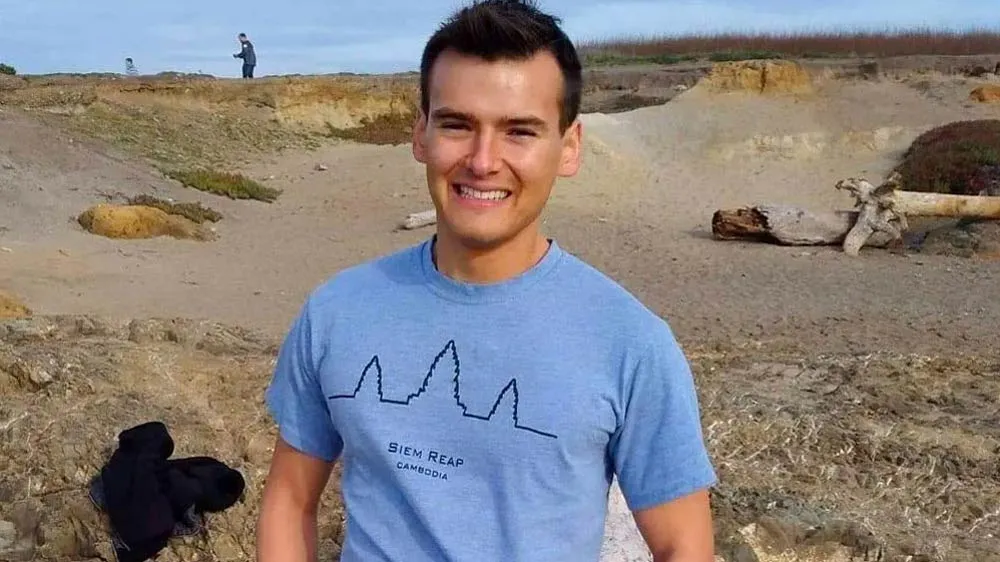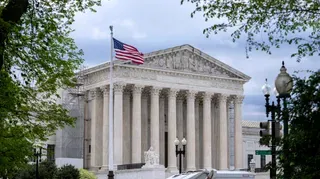November 27, 2009
Orlando May Add Trans Protections
Kilian Melloy READ TIME: 6 MIN.
Orlando may join other Florida cities in covering transgendered people under anti-discrimination ordinances. The measure is being promoted by openly lesbian Commissioner Patty Sheehand, who proposed the change to Orlando mayor Buddy Dyer, reported The Orlando Sentinel in a Nov. 27 article. The mayor indicated he would back the measure, saying, "I support eradicating all forms of discrimination, and I think my record has been 100 percent on that."
If adopted, the measure is expected to provide protections to transgendered individuals, including those who have undergone gender reassignment surgery as well as those who have not physically transitioned, but who live and dress as the other gender. Transgendered people are born with the physical anatomy of one gender, but deeply and persistently identify as the other gender. Often, the identification with the other gender begins very early in childhood. Some transgendered individuals opt for surgery and other measures to change their physical characteristics to those of the other gender, but many trans people do not make the change, preferring simply to dress and live as the gender with which they identify.
The general pubic often confuses transgendered people with gays. However, transgenderism is more complex than that: for example, it is not unusual for transwomen--men who identify as female--to prefer the romantic and sexual company of women.
Fifteen cities around Florida, and municipalities around the country, have begun to extend anti-discrimination protections to trans individuals. Earlier this month, the city of Fort Worth, Texas, approved an expansion to local protections that would cover trans people. Fort Worth activist Tory Van Fleet recounted how trans people she knew had been targeted for employment discrimination before the ordinance passed, saying, "I have a friend who was fired from her job at an airport owned by the city of Fort Worth. She and another transgender person were the only ones fired, and it was pretty obvious that it was because they were transgender."
Van Fleet was careful to note that what trans equality advocates want is not special rights for anyone, but rather freedom from the fear of persecution. "We're not saying you can't fire someone for not doing their job or that you have to hire someone who isn't qualified. We just don't want people to be fired just because they are transgender. This is not about special rights for a few. This is about the same rights for all."
Often, opponents of such measures zero in on the question of restroom use, arguing that pedophiles or voyeurs might abuse such protections, with men entering women's lavatories under the guise of being transgendered.
Such was the case in Tampa, where trans protections were added to local anti-discrimination laws only last week. Fears about sexual predators exploiting the measure were raised by anti-gay groups such as the American Family Association (AFA), which put out a statement recalling an incident involving a sex offender who had illegally been in a women's area of a Tampa fitness center.
"Tampa Police arrested Robert Johnson in February 2008 for hanging out in the locker room-restroom area at Lifestyle Fitness and watching women in an undressed state," the AFA statement said. "The City of Tampa's 'gender identity' ordinance could provide a legal defense to future cases like this if the accused claims that his gender is female."
"This ordinance will give lawful protection to cross-dressing males to patronize women's restrooms," warned a statement from another anti-gay group, the Florida Family Association. "And men dressed as women or women who perceive themselves as men can also use men's restrooms."
Charges of anti-Christian persecution quickly followed. "We're trying to mobilize people to stand in opposition to what is a bad law [that] discriminates against Christians and provides special privileges for people based on sexually aberrant behavior," claimed the president of the Community Issues Council, Terry Kemple, in speaking about the Tampa ordinance.
"This is intended to address people who are dealing with gender identity," said Chip Fletcher, Tampa's city attorney. As such, the law applies to individuals who are transitioning to the other gender anatomically, so their bodies come into alignment with their personal perceptions of their own genders.
But the president of the anti-gay AFA, Tim Wildmon, gave the story a different spin, claiming that school children would be affected by the inclusion of trans individuals under the ordinance. "The gender identity ordinance also provides legal protection for transgenders to teach schoolchildren one day as a man and another day as a woman," asserted Wildmon in an email. "Unfortunately, the ordinance does not attempt to qualify who really is a transgender and who is not. That is left up to the individual to determine what his 'gender identity' is that day."
Kemple cast the issue as one in which religious political clout must be used in order to prevent the erosion of religious freedoms: "If the city council hears a loud voice from the church they'll think twice and we may actually defeat this proposal," declared Kemple. "If they don't hear from us be ready to lose a few more of the religious freedoms our country was established to protect."
Across the country, over a dozen states and a number of large companies--well over three-quarters of Fortune 500 companies--have also acted to provide trans protections. Without protections in place for trans individuals, noted Nadine Smith, Equality Florida's executive director, trans citizens could face loss of employment, be denied housing, and find themselves ejected from restaurants and other public places. Smith called Tampa's inclusion of trans citizens under the city's anti-discrimination ordinance "long overdue," adding, "This is what big cities do to protect their citizens."
Anti-gay groups have employed what equality advocated dub "scare tactics" in other areas of the country as progress for trans protections has continued. In Colorado, as in Tampa, rhetoric around denying trans individuals protections centered on restroom usage. James Dobson, the head of the anti-gay organization Focus on the Family, which is headquartered in Boulder, issued a warning that predicted dire consequences. "Henceforth, every woman and little girl will have to fear that a predator, bisexual, cross-dresser or even a homosexual or heterosexual male might walk in and relieve himself in their presence," Dobson declared.
Responded Colorado State Senator Jennifer Veiga, "[Equality opponents] can point to absolutely no example that this happened in Colorado" or any of the 16 states where trans people are included in anti-discrimination protections.
A lack of precedent has not deterred opponents from carrying their fight against trans equality to the federal level. The Obama Administration is working with lawmakers to pass a trans-inclusive version of the Employment Non-Discrimination Act (ENDA). The bill has strong bipartisan support in both the House and the Senate, according to a Nov. 6 article at Workforce Management. Senate supporter Tom Harkin, an Iowa Democrat and the chairman of the Senate Health, Education, Labor and Pensions Committee, vowed that an ENDA bill would be on President Obama's desk in 2010.
"The Obama administration believes that ENDA must be the next step in the unfinished business of America, which is civil rights," said Assistant Attorney General for Civil Rights Tom Perez of the trans-inclusive legislation.
The issue of trans equality and anti-discrimination measures extending to the trans community has taken strides forward in the last year or so. Shockwaves went through the GLBT community in 2008 when a version of ENDA that had been stripped of any protections for trans individuals was submitted to Congress; in the wake of that attempt, the GLBT community has rallied around trans equality issues.
Similarly, the proposed amendment to Orlando's anti-discrimination ordinance is meant to correct the current law's shortcomings, which came about when city officials removed trans-inclusive language from the original draft, in 2002, in order to make the law more palatable. Even without trans protections, the ordinance drew impassioned opposition in which anti-gay activists made claims about gays spreading disease and endangering children.
Dyer indicated that he wanted to test the waters to see if public acceptance had grown in the last seven years. "This specific issue was apparently a swing issue when the previous protections were passed," noted the mayor.
Kilian Melloy serves as EDGE Media Network's Associate Arts Editor and Staff Contributor. His professional memberships include the National Lesbian & Gay Journalists Association, the Boston Online Film Critics Association, The Gay and Lesbian Entertainment Critics Association, and the Boston Theater Critics Association's Elliot Norton Awards Committee.







